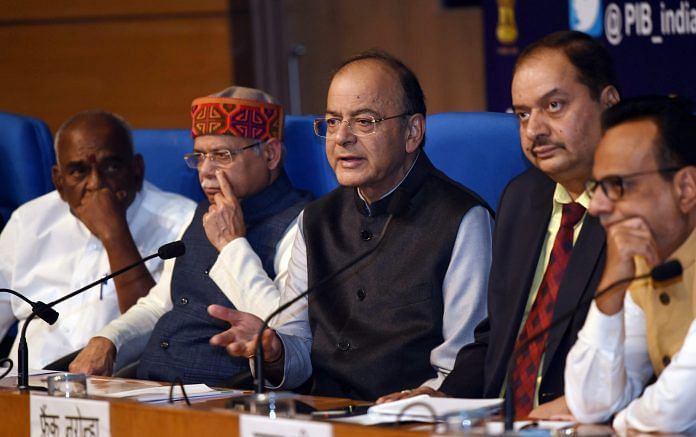LTCG reintroduced after 14 years; govt also imposes 10% tax on dividend distributed by equity mutual funds.
The Centre has finally bitten the bullet on increasing the tax on capital market investments, with reintroduction of long-term capital gains (LTCG) tax after 14 years.
The Union Budget 2018-19 proposed to levy a 10 per cent LTCG tax on profits of over ~1,00,000 on shares and other equity-oriented investments without any indexation benefit. Until now, such transactions were entirely exempt from taxes, while a flat 15 per cent rate was applicable on short-term capital gains (profits made on investments held for less than a year).
Market players said levy of LTCG tax without scrapping the securities transaction tax (STT), which was introduced in 2004 in lieu of LTCG, was a negative.
The Centre, however, has managed to soften the blow by grandfathering the existing investments. In other words, while the new tax will be applicable to all investments, the reference price would be the highest quoted price on January 31, 2018, or the cost of acquisition, whichever is higher.
It also went after the booming mutual fund (MF) sector by introducing a 10 per cent dividend distribution tax (DDT) on equity schemes.
“Taxing of long-term capital gains on listed shares and also a levy of DDT on equity-oriented MFs is likely to temper the return for high net worth individuals. But, grandfathering of gains accrued until January 31, 2018 will limit the adverse impact. Small investors, too, have been protected,” said Kuldip Kumar, leader, personal tax, PwC India.
The Centre said the introduction of LTCG was necessary to curb misuse.
“[No LTCG] regime is inherently biased against manufacturing and has encouraged diversion of investment in financial assets. It has also led to significant erosion in the tax base, resulting in revenue loss. The problem has been further compounded by abusive use of tax arbitrage opportunities created by these exemptions. In order to minimise economic distortions and curb erosion of tax base, it is proposed to withdraw the exemption,” said the Finance Bill.
The BSE, in a pre-Budget representation to the government, had said LTCG exemption was costing the exchequer ~490 billion annually in tax collection.
Market players said the annual collection could be much lower. The rally since 2014 has pushed the reference rate (January 31 prices) higher, which could lower the gains. The Centre collects close to ~80 billion annually through STT, the rates for which have been kept unchanged.
“The government’s move to impose LTCG and the decision to retain the STT will dampen investors’ sentiments. While the tax will adversely affect serious investors, who are funding the India growth story, short-term traders will be not be impacted,” said K Suresh, national president, Association of National Exchanges Members of India, a lobby for brokers.
Market players said the narrow difference in LTCG and STCG tax rates could promote short-term investments or trading culture. It could also reduce relative attractiveness of equity as an asset class.
“Until now, tax benefits were skewed in favour of listed equities, but after the announcement there would be a more level playing field between listed shares and other asset classes, including real estate, bonds, and gold,” said Rajesh Gandhi, partner, Deloitte Haskins & Sells.
The Centre said the move to levy a 10 per cent tax on distribution of dividends paid by equity MFs was aimed at creating parity among various schemes in the wake of LTCG introduction. This new tax could lead to migration of investors from dividend-oriented schemes to growth-oriented ones, where the dividends are ploughed to buy new units.
Finance Minister Arun Jaitley also announced a few measures to infuse life into the Gift City, India’s first and the only international financial services centre (IFSC).
The Centre proposed to remove short-term and long-term capital gains tax on non-resident investments coming through IFSC. This was a key industry demand. It further said it would soon introduce a unified financial market regulator for IFSCs.
“It is a positive Budget for Gift City. All transactions on our exchange will now be exempt from capital gains in derivatives for all non-residents. Also the announcement of creating a unified market regulator will bring focus on the IFSC,” said V Balasubramaniam, managing director, India INX, a bourse set up by the BSE at Gift City.
To monetise the assets owned by the National Highways Authority of India (NHAI), the finance minister said he would look at creating special purpose vehicles (SPVs) to launch infrastructure investment trusts.
By Special Arrangement with the Business Standard



